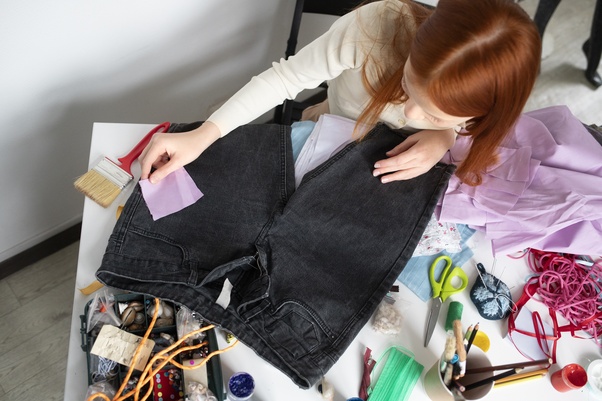In recent years, there has been a growing awareness of the environmental impact of various aspects of our lives, including the costumes we wear for events like Book Week. Book Week celebrates literature and encourages reading among children and adults alike.
It’s a time when schools, libraries, and communities come together to celebrate favorite books and characters. However, this celebration doesn’t have to come at the expense of the planet. By opting for eco-friendly costume ideas, we can make Book Week both fun and sustainable.
Why Choose Eco-Friendly Book Week Costumes?
Before diving into book week costume ideas, it’s essential to understand why opting for eco-friendly options is important. Traditional costumes often involve synthetic fabrics, single-use materials, and non-recyclable items, all of which contribute to environmental waste.
By choosing eco-friendly alternatives, such as recycled materials or items that can be reused, we can reduce our carbon footprint and set a positive example for future generations.
Tips for Creating Sustainable Book Week Costumes
Creating a sustainable Book Week costume doesn’t have to be complicated. Here are some tips to help you get started:
- Repurpose Old Clothes and Fabrics: Look through your wardrobe or visit a thrift store to find clothes that can be transformed into costumes. Old dresses, shirts, and pants can often be altered or combined to create a unique outfit.
- Use Recycled Materials: Get creative with materials that would otherwise be discarded. Cardboard, paper, and even old newspapers can be used to make props and accessories. Remember to recycle these materials after Book Week is over.
- Choose Biodegradable or Organic Fabrics: If you’re making or buying a costume, opt for fabrics that are biodegradable, such as organic cotton, hemp, or bamboo. These materials have a lower environmental impact compared to synthetic fabrics like polyester.
- Avoid Plastic and Non-Recyclable Decorations: When decorating your costume, steer clear of plastic beads, glitter, and other non-recyclable decorations. Instead, use natural materials like feathers, leaves, or flowers.
- DIY Your Costume: Making your costume from scratch not only allows you to control the materials used but also adds a personal touch. Get the whole family involved in crafting costumes together using eco-friendly materials.
Eco-Friendly Book Week Costume Ideas
Now, let’s explore some specific costume ideas that are both eco-friendly and inspired by beloved book characters:
- The Hungry Caterpillar (from “The Very Hungry Caterpillar” by Eric Carle): Create this iconic character using green clothing (such as a t-shirt and leggings) and craft a caterpillar body using recycled cardboard painted in bright colors. Add antennae using pipe cleaners and attach them to a headband.
- Fern Arable (from “Charlotte’s Web” by E.B. White): Dress in simple farm attire (overalls and a plaid shirt) and carry a handmade spider web (crafted from yarn) or a small stuffed pig toy as a prop.
- The Lorax (from “The Lorax” by Dr. Seuss): Wear orange clothing and fashion the iconic mustache and eyebrows using recycled felt or cardboard. Carry a small potted plant or a Truffula tree made from colorful tissue paper.
- Madeline (from the “Madeline” series by Ludwig Bemelmans): Dress in a blue coat with a white collar (easy to find in thrift stores) and add a yellow hat. Complete the look with white gloves and black shoes.
- Harry Potter (from the “Harry Potter” series by J.K. Rowling): Create a wizard robe using recycled fabric or repurposed old clothing. Craft a wand using a stick from the garden and paint it with non-toxic paint.
Eco-Friendly Makeup and Hairstyles: Safe and Stylish
Complete the eco-friendly costume with makeup and hairstyles that are safe for children and kind to the environment. Prioritize health and wellness, and choosing natural and non-toxic makeup options aligns with these values.
Use organic face paints or make homemade versions using ingredients like cornstarch and natural food coloring. Opt for hairstyles that require minimal products and accessories, such as braids, buns, or styles that reflect the character’s appearance in the storybook.
Teach Sustainability: Lessons Beyond the Costume
Book Week offers a valuable opportunity to teach children about sustainability and responsible consumption. Experts emphasize the importance of education in shaping future behaviors, and instilling eco-conscious values early can have a lasting impact.
Discuss the concept of recycling, reducing waste, and making eco-friendly choices when planning and creating the costume. Encourage children to think creatively and consider the environmental impact of their decisions, fostering a sense of responsibility towards the planet and future generations.
Celebrating Book Week with eco-friendly costumes not only promotes sustainability but also encourages creativity and resourcefulness. Whether you’re a parent helping your child prepare for a school event or an adult participating in a community celebration, choosing sustainable options for costumes can make a positive impact on the environment.
By following these tips and getting creative with recycled materials, you can enjoy Book Week while reducing waste and inspiring others to do the same. Let’s make every week Book Week for our planet’s sake!




